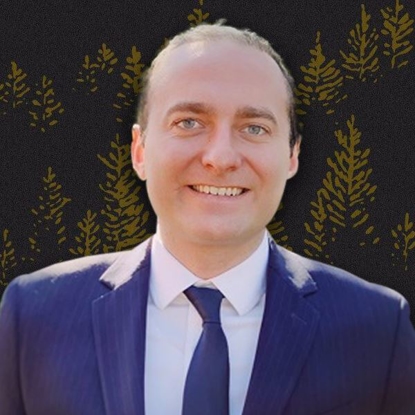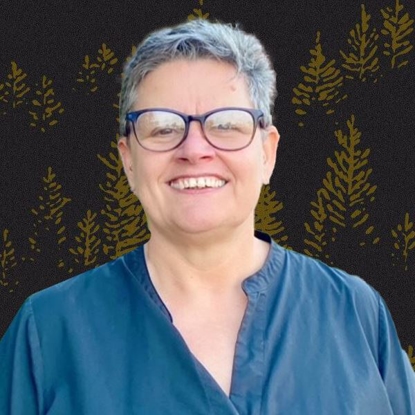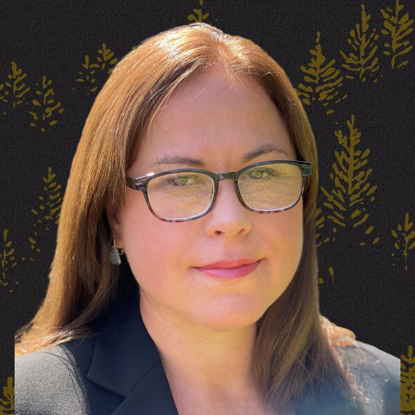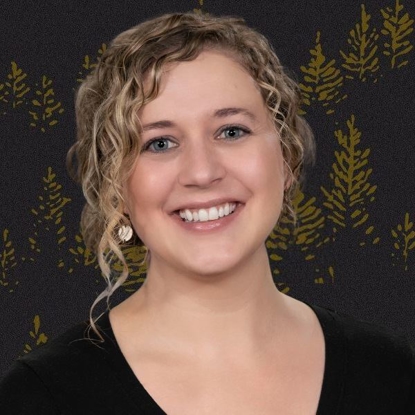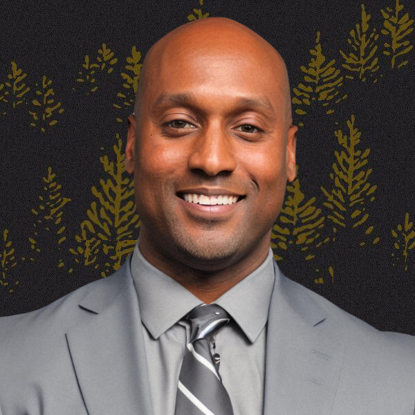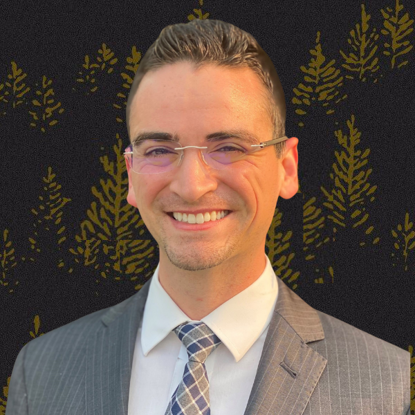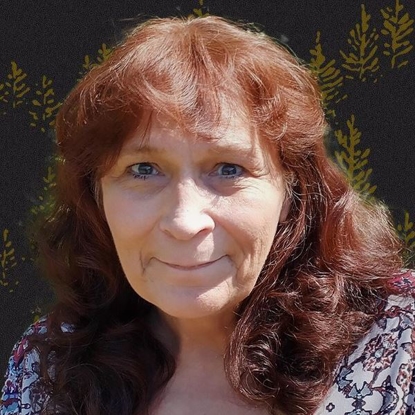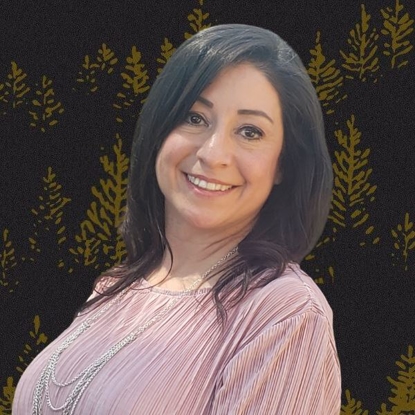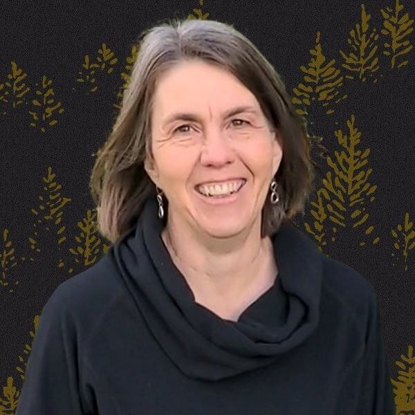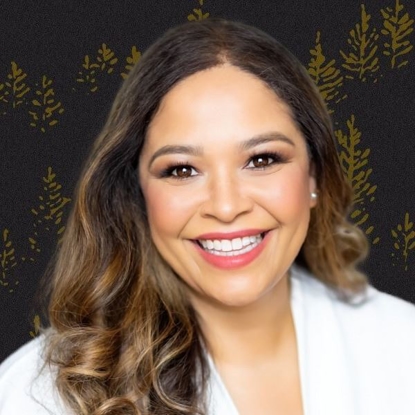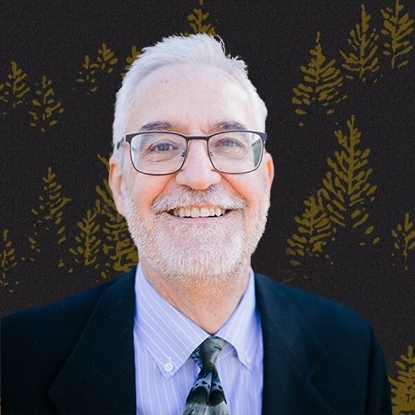
Salem Wrongful Death Lawyers
Seeking Compensation for the Loss of Loved Ones
Losing a loved one due to someone else’s negligence or wrongful actions is an unimaginable tragedy. The emotional and financial impact on families can be overwhelming, and dealing with the legal process may feel impossible during such a painful time. At Pacific Cascade Legal, our Salem wrongful death lawyers are here to support you in pursuing justice, holding responsible parties accountable, and seeking compensation for your loss. We understand the complexities of wrongful death cases and will work tirelessly to ensure you receive the legal representation you deserve.
To find out more about how to pursue a wrongful death claim, call Pacific Cascade Legal at (503) 573-5566 or contact us online for a free consultation.
What is Wrongful Death?
Wrongful death occurs when a person dies due to the negligent, reckless, or intentional actions of another individual, business, or entity. This can arise from various situations, including car accidents, workplace incidents, medical malpractice, product defects, and more. The law views wrongful death cases as civil claims rather than criminal ones, meaning that instead of jail time, those responsible may be required to compensate the deceased’s family for their losses.
If you’ve lost a loved one and believe it was due to someone else’s negligence, consulting a Salem wrongful death lawyer can help determine if you have a viable claim. The team at Pacific Cascade Legal is here to explain your rights, evaluate your case, and guide you through every step of the process.
Who Can File a Wrongful Death Lawsuit in OR?
Oregon law allows specific individuals to file a wrongful death claim. Typically, this right is granted to the personal representative or executor of the deceased’s estate. However, the damages obtained from the claim may benefit certain surviving family members. Those eligible to benefit from a wrongful death claim in Oregon include:
- Spouse or domestic partner of the deceased
- Children of the deceased, including adopted children
- Parents of the deceased
- Other close relatives if they were financially dependent on the deceased, such as stepchildren or siblings
If you’re unsure about your eligibility to file a wrongful death lawsuit, our experienced Salem wrongful death attorneys can clarify the process, ensure all necessary steps are taken, and represent your best interests.
Causes of Wrongful Death
Wrongful death claims can arise from various scenarios, including but not limited to:
- Motor vehicle accidents: Negligent drivers, distracted drivers, drunk drivers, or even faulty vehicle parts can lead to fatal crashes.
- Medical malpractice: Misdiagnoses, surgical errors, medication mistakes, and other medical errors can cause avoidable deaths.
- Workplace accidents: Unsafe working conditions, equipment malfunctions, or inadequate safety protocols may result in fatal workplace injuries.
- Defective products: Unsafe consumer products, from electronics to vehicles, can cause fatal injuries.
- Premises liability accidents: Dangerous conditions on someone else’s property, such as unmarked hazards or inadequate security, can lead to fatal incidents.
Compensation from a Wrongful Death Claim
While no financial compensation can truly make up for the loss of a loved one, wrongful death claims can help alleviate the financial burdens that often follow such a tragedy. Compensation in a wrongful death claim may cover both economic and non-economic damages, including:
- Medical Expenses: If the deceased received medical treatment before their passing, the family might be compensated for these costs.
- Funeral and Burial Expenses: A wrongful death claim can cover funeral and burial costs, which can be substantial.
- Lost Income and Benefits: Families may recover compensation for the financial support they would have received from their loved one, including lost future income, pensions, and other benefits.
- Loss of Companionship: Non-economic damages can be awarded for the emotional suffering, including the loss of love, support, and companionship of the deceased.
- Pain and Suffering: In some cases, damages may also cover the mental anguish suffered by the surviving family members.
Why Choose Pacific Cascade Legal?
Choosing the right attorney for your wrongful death case is essential to achieving justice. Our Salem wrongful death lawyers at Pacific Cascade Legal bring compassionate support, skilled legal representation, and extensive experience to every case.
Here’s why clients trust us:
- Experience and Dedication: We have extensive experience in handling wrongful death cases in Oregon and are dedicated to providing personalized and attentive service.
- Focused on Client Support: We understand the emotional toll that accompanies wrongful death cases. We offer compassionate support throughout the legal process, ensuring you feel heard and supported.
- Thorough Investigation: Our team conducts detailed investigations to gather evidence, consult with experts, and build a strong case to hold the responsible parties accountable.
- Proven Track Record: Our attorneys have a track record of successfully representing families in wrongful death cases and securing compensation for their losses.
To schedule a free case review with one of our Salem wrongful death lawyers, please contact us at (503) 573-5566 today.
Oregon City Wrongful Death Attorney
Compassionate & Experienced Legal Advocacy
The sudden death of a loved one due to another person or party’s negligence can be an extremely emotionally distressing experience, as well as a financially burdensome one. Our wrongful death lawyers at Pacific Cascade Family Law are recognized throughout Oregon City and Clackamas County for delivering highly experienced, tailored, and compassionate client service in the wake of tragic and catastrophic events.
Contact us at (503) 573-5566 to request an in-person consultation with our entire team to learn all your options.
What is Considered a Wrongful Death?
In Oregon, a wrongful death claim arises when a person dies due to the negligence or wrongful conduct of another party. The purpose of this claim is to provide compensation to the deceased's family members for their loss, which can include economic and non-economic damages.
To succeed in a wrongful death lawsuit in Oregon, the following elements generally need to be proven:
- Existence of a Duty of Care: The defendant owed a duty of care to the deceased. This means that the defendant had a legal obligation to act in a manner that would not cause harm to others.
- Breach of Duty: The defendant breached that duty by acting in a way that was negligent, reckless, or otherwise wrongful. This breach must be shown to be a deviation from the standard of care that a reasonable person would have exercised in the same situation.
- Causation: The defendant's breach of duty was the direct cause of the deceased’s death. This means that the death would not have occurred but for the defendant's wrongful actions or negligence.
- Damages: The death resulted in damages to the surviving family members. These damages can include economic losses (such as lost income and funeral expenses) and non-economic losses (such as loss of companionship and emotional dis
Who Can File a Wrongful Death Lawsuit in Oregon?
Generally, the personal representative (or executor) of the deceased’s estate is responsible for filing the wrongful death lawsuit. This individual is appointed to manage the deceased’s estate and handle legal matters on behalf of the estate.
Oregon law specifies who may be entitled to receive damages from a wrongful death lawsuit. The potential beneficiaries include:
- Spouse: The surviving spouse of the deceased is typically entitled to compensation for their loss.
- Children: The deceased's children (including adopted children) can also be beneficiaries. If the deceased had minor children, they are usually entitled to a portion of the damages.
- Parents: If the deceased was unmarried and did not have children, the surviving parents may be entitled to damages.
- Siblings and Other Relatives: If the deceased had no spouse, children, or parents, siblings and other close relatives may be eligible to receive damages. However, this is less common and usually depends on the specifics of the case.
Compensation for Wrongful Death
In a wrongful death lawsuit, compensation is awarded to address the financial and emotional impact of the deceased's death on surviving family members. The compensation can be divided into several categories:
Economic Damages
Economic damages are intended to cover quantifiable financial losses resulting from the death. These may include:
- Lost Financial Support: Compensation for the income the deceased would have earned if they had lived. This can include wages, benefits, and any other financial contributions the deceased would have made to their family.
- Funeral and Burial Expenses: Reimbursement for the costs associated with the deceased's funeral and burial.
- Medical Expenses: Compensation for medical costs incurred before the death, including hospital stays, treatments, and medications related to the incident that led to the death.
Non-Economic Damages
Non-economic damages address the intangible losses that cannot be easily quantified. These may include:
- Loss of Companionship: Compensation for the emotional and psychological impact of losing a loved one, including the loss of the deceased's companionship, love, and affection.
- Emotional Distress: Compensation for the mental anguish, suffering, and emotional distress experienced by surviving family members.
- Loss of Consortium: In cases where the deceased was a spouse, compensation for the loss of marital companionship, support, and intimacy.
Why Choose Pacific Cascade Legal?
As people, we were all meant to live the entirety of our lives and pass away due to natural causes. For others to suffer from the wrongful conduct of others is simply unimaginable. It is not only morally unjust for people to have their loved ones gone, due to others` negligence but there is legal redress for those left behind after the tragic loss of a loved one.
Our team at Pacific Cascade Legal understands how difficult it can be to go through the legal process while grieving and processing everything that has happened. That is why we are ready to ensure you obtain your entitled compensation to cover all the losses to help you and your family in any way possible.
Call (503) 573-5566 today. We will schedule a time for a free consultation.
Beaverton Wrongful Death Lawyer
Ready to Help You & Your Family Through This Difficult Time
Losing a loved one is never easy, and when that loss occurs due to someone else's negligence or wrongful actions, the pain can be overwhelming. At Pacific Cascade Legal, we understand the profound impact that wrongful death can have on families in Beaverton, OR. Our experienced and compassionate wrongful death lawyers are here to provide you with the legal support and guidance you need during this challenging time.
Call (503) 573-5566 or fill out our online contact form today to request a free consultation.
Understanding Wrongful Death in Oregon
Wrongful death is a legal concept that allows the surviving family members or dependents of a person who has died due to someone else's negligence, recklessness, or intentional wrongdoing to seek compensation through a civil lawsuit. Wrongful death claims are typically filed to hold the responsible party accountable for their actions and to provide financial support to the deceased person's surviving family members.
In Oregon, like in many other states, to succeed in a wrongful death lawsuit, you generally need to establish several key elements:
-
Duty of Care: You must demonstrate that the defendant (the person or entity you are suing) owed a duty of care to the deceased person. Duty of care refers to the legal obligation to act reasonably and responsibly to prevent harm to others. For example, in a car accident case, all drivers owe a duty of care to others on the road to drive safely and follow traffic laws.
-
Breach of Duty: You must show that the defendant breached their duty of care by failing to act in a reasonable or responsible manner. This means proving that the defendant's actions or inactions directly contributed to the death of your loved one. For instance, if a healthcare provider failed to follow established medical standards, leading to the death of a patient, this could constitute a breach of duty.
-
Causation: It is essential to establish a causal link between the defendant's breach of duty and the deceased person's death. This means proving that the defendant's actions were a direct and substantial factor in causing the fatal injury or event.
-
Death: You must prove that the individual in question died as a result of the defendant's actions. While this may seem obvious, it's crucial to establish the cause of death through medical records, autopsy reports, or other relevant evidence.
-
Surviving Family Members: In Oregon, only certain individuals are eligible to bring a wrongful death claim. Typically, these include surviving spouses, children, and, in some cases, parents or stepchildren. You must demonstrate that you are an eligible family member entitled to pursue the claim.
-
Damages: Lastly, you must show that you and other surviving family members have suffered measurable damages as a result of the death. These damages can include medical expenses, funeral and burial costs, loss of income and financial support, loss of companionship, and emotional distress.
Who Can File a Wrongful Death Lawsuit in Oregon?
In Oregon, the personal representative of the deceased person's estate may file a claim on behalf of the estate. Any damages recovered in such a case would be distributed according to the deceased person's will or Oregon's intestate succession laws.
In Oregon, the common beneficiaries or claimants who are eligible to file a wrongful death claim when a loved one dies due to someone else's negligence or wrongful actions include the following individuals:
-
Surviving Spouse: The surviving spouse of the deceased person is usually the primary and most common beneficiary of a wrongful death claim in Oregon. The surviving spouse has the first right to file a claim and seek compensation for the loss of their spouse.
-
Children: Children of the deceased, including biological, adopted, and stepchildren, are also common beneficiaries in wrongful death cases. They may share the claim equally if there are multiple children, or the distribution may vary based on the circumstances and court decisions.
-
Parents: If there is no surviving spouse or children, the parents of the deceased person may have the right to bring a wrongful death claim. Both biological and adoptive parents are typically eligible.
-
Other Dependents: In some cases, individuals who were financially dependent on the deceased person at the time of their death may be eligible to file a wrongful death claim. This category can include domestic partners, stepchildren, or other family members who relied on the deceased for support and care.
Let Our Firm Fight for Your Loved One
At Pacific Cascade Legal, our team of Beaverton wrongful death lawyers combines extensive legal knowledge with a deep understanding of the emotional turmoil that accompanies such cases. We approach each case with the utmost compassion and dedication, striving to provide families with the support they need during this difficult journey.
Contact us today at (503) 573-5566 for a free consultation with our Beaverton wrongful death lawyer.
Portland Wrongful Death Lawyer
Assistance with Wrongful Death Claims in Oregon
At Pacific Cascade Legal, we understand the devastating impact that a wrongful death can have on a family. Our Portland wrongful death attorneys are here to help you and your family navigate the legal process and seek justice for your loved one.
To speak with a Portland wrongful death lawyer, start by filling out an online contact form.
What Constitutes Wrongful Death in OR?
In Oregon, wrongful death refers to a situation where a person's death is caused by the negligence, misconduct, or intentional actions of another party. The state has specific laws that govern wrongful death claims and provide legal recourse for the surviving family members or personal representatives of the deceased individual.
To establish a wrongful death claim in Oregon, the following elements generally need to be proven:
-
Duty of care:The responsible party must have owed a dutyof care to the deceased person. This duty of care can arise from various relationships, such as a doctor-patient relationship, employer-employee relationship, or driver-passenger relationship.
-
Breach of duty: It must be demonstrated that the responsible party breached their duty of care. This means that they failed to exercise the level of care that a reasonably prudent person would have exercised in similar circumstances.
-
Causation: There must be a direct link between the breach of duty and the death of the individual. It must be shown that the actions or negligence of the responsible party were a substantial factor in causing the death.
-
Damages: The wrongful death must have resulted in damages to the surviving family members or the estate of the deceased person. Damages can include financial losses, such as medical expenses, funeral costs, loss of future income, and loss of companionship.
Who Can File a Wrongful Death Claim?
In Oregon, the right to file a wrongful death claim is typically granted to specific individuals or parties who are considered "beneficiaries" under the state's wrongful death statute.
The order of priority for filing a wrongful death claim is as follows:
-
Personal Representative: The personal representative of the deceased person's estate is typically the first eligible party to file a wrongful death claim. The personal representative is usually appointed through a will or by the court if there is no will. The personal representative acts on behalf of the estate and the surviving family members.
-
Surviving Spouse: If there is a surviving spouse, they have the right to file a wrongful death claim if there are no surviving children or stepchildren of the deceased.
-
Surviving Children: If there are surviving children or stepchildren of the deceased, and there is no surviving spouse, they have the right to file a wrongful death claim.
-
Parents: If there is no surviving spouse or children, the deceased person's parents may have the right to file a wrongful death claim.
-
Personal Representative of a Deceased Child: If the wrongful death claim involves the death of a child, and there are no surviving spouses, children, or parents, the personal representative of the deceased child's estate may be eligible to file the claim.
Oregon law has specific rules regarding the distribution of damages awarded in a wrongful death claim. These damages are typically distributed among the eligible beneficiaries in a specific order established by the statute.
Types of Wrongful Death Claims
Wrongful death claims can arise from various circumstances and situations. Here are some common types of wrongful death claims:
-
Medical Malpractice: When a healthcare professional's negligence, such as a doctor, nurse, or hospital, leads to the death of a patient. This can include misdiagnosis, surgical errors, medication mistakes, or failure to provide appropriate treatment.
-
Car Accidents: Wrongful death claims can result from car accidents caused by negligent or reckless driving, including drunk driving, distracted driving, speeding, or failure to obey traffic laws.
-
Workplace Accidents: If a worker dies as a result of a workplace accident due to unsafe conditions, inadequate training, equipment failure, or employer negligence, a wrongful death claim may be pursued.
-
Defective Products: If a defective product causes someone's death, such as a faulty vehicle part, dangerous pharmaceutical drug, or a defective household item, the manufacturer or distributor may be held liable.
-
Nursing Home Abuse/Neglect: If a nursing home resident dies due to abuse, neglect, or inadequate care, the facility or its staff members may be held accountable in a wrongful death claim.
-
Criminal Acts: If someone is killed as a result of a criminal act, such as assault, murder, or manslaughter, the perpetrator can face criminal charges, and the surviving family may pursue a wrongful death claim against them in civil court.
Discover Your Rights – Let Us Help
If you have lost a loved one due to an accident or negligence, please contact Pacific Cascade Legal today. Our Portland wrongful death attorneys are here to help you seek justice for your loved one and provide you with support and guidance for a tragic loss.
Request an initial consultation by dialing (503) 573-5566 now!
Eugene Wrongful Death Attorneys
Compassionate Legal Support for Grieving Families
When a loved one dies, the emotional toll can be overwhelming. When that death is caused by someone else’s negligence, the pain can be even more difficult to bear. In addition to the emotional trauma, you may be facing financial hardship due to the loss of your loved one’s income and the cost of medical bills and funeral expenses.
At Pacific Cascade Legal, our Eugene wrongful death lawyer understands the unique challenges you are facing. We are here to provide the compassionate support you need during this difficult time. Our team can help you navigate the legal process and maximize your damages.
Call (503) 573-5566 or contact us online to request a free consultation.
What is Wrongful Death?
Wrongful death is a legal term that refers to a death that is caused by someone else’s negligence, recklessness, or intentional misconduct. When a person dies in an accident or as a result of someone else’s wrongful act, the personal representative of the deceased's estate is the individual authorized to file a wrongful death lawsuit.
In Oregon, the beneficiaries eligible to recover damages in a wrongful death lawsuit are typically the following:
- Spouse: The surviving spouse of the deceased.
- Children: Minor children of the deceased or adult children who were financially dependent on the deceased.
- Parents: If there are no surviving spouse or children, the deceased's parents might be considered beneficiaries in certain cases.
- Other Dependents: Anyone else who can prove they were financially dependent on the deceased person.
If the deceased person does not have a surviving spouse, children, parents, or personal representative, the personal representative of the deceased person’s estate may file a wrongful death claim on behalf of any other individuals who are entitled to inherit the deceased person’s property.
What Damages Are Available in a Wrongful Death Claim?
When you file a wrongful death claim, you may be able to recover compensation for a wide range of damages. These damages are intended to compensate you for the losses you have suffered as a result of your loved one’s death.
Depending on the circumstances, you may be able to recover compensation for the following damages:
-
Economic Damages: These encompass measurable financial losses and expenses incurred as a
result of the death, such as:
- Medical bills related to the final injury or illness.
- Funeral and burial expenses.
- Loss of income or financial support the deceased would have provided to their family if they had lived.
-
Non-Economic Damages: These are less tangible losses and include:
- Loss of companionship, care, guidance, and nurturing that the deceased would have provided to their family members.
- Pain and suffering experienced by surviving family members due to the loss of their loved one.
- Punitive Damages: In certain cases where the responsible party's actions were particularly egregious, the court may award punitive damages. These are intended to punish the defendant and deter similar behavior in the future rather than solely compensate the family for their losses.
The specific amounts and types of damages awarded can vary significantly based on the circumstances of the case, the extent of the loss suffered by the surviving family members, and other factors. Oregon law aims to fairly compensate the surviving family members for both economic and non-economic losses resulting from the wrongful death.
Why Choose Us?
Do not go through the grieving and legal process alone. Pacific Cascade Legal can provide valuable assistance in navigating the complexities of a wrongful death case in Oregon.
Here's how we can help:
- Legal Expertise: We offer our expertise in Oregon's wrongful death laws, ensuring that our clients understand their rights and the legal processes involved.
- Case Evaluation: We conduct a thorough review of the circumstances surrounding the wrongful death to determine the strength of the case and the potential for compensation.
- Gathering Evidence: Our team works diligently to collect evidence, including medical records, witness statements, and expert opinions, to build a strong case supporting our client's claim.
- Negotiations: We handle communications and negotiations with insurance companies or the opposing party on behalf of our clients to seek fair settlements.
- Litigation Support: If a settlement cannot be reached, we provide strong representation in court. Our legal team prepares and presents the case, advocating for our client's interests during trial proceedings.
- Emotional Support: We understand the emotional toll a wrongful death case can have on our clients. We offer compassionate support and guidance throughout the legal process.
- Maximizing Compensation: Our goal is to ensure our clients receive the maximum compensation available under Oregon law for the damages they have suffered due to the wrongful death of their loved one.
Our Eugene wrongful death lawyers are committed to providing dedicated and comprehensive legal representation to our clients, advocating fiercely for their rights and striving for a just resolution in their wrongful death cases. Let us help you and your family during this challenging time.
Contact us today at (503) 573-5566 to discuss your case with our compassionate legal team.
Oregon Wrongful Death Lawyer
Helping Oregon Families Move Forward After Tragedy
When a loved one dies due to the negligent, reckless, or wrongful actions of another person or entity, the surviving family members are left with an unfathomable void in their lives. While no amount of money can bring back a loved one, Oregon law does provide a mechanism to at least partially compensate families for the untimely death of a spouse, child, parent, or other loved one.
At Pacific Cascade Legal, we understand the immense grief and suffering that comes with wrongful death cases. Our team of experienced attorneys is here to provide compassionate and skilled legal representation for families in Bend, Oregon, who have lost a loved one due to another party's negligence. We are dedicated to helping our clients seek justice and compensation in their time of need.
Call (503) 573-5566 or contact us online today to schedule a free consultation.
What is Wrongful Death?
Wrongful death law in Oregon, like in many other states, is a legal framework that allows surviving family members or the personal representative of a deceased person's estate to seek compensation when the death of their loved one was caused by the negligent or intentional actions of another party. It provides a means for the family to hold responsible parties accountable for the loss of their loved one and to recover damages for the various losses they may have suffered due to the death.
Here are the key elements you must prove in a wrongful death lawsuit in Oregon:
- Duty of Care: You must establish that the defendant owed a duty of care to the deceased person. In other words, you need to show that the responsible party had a legal obligation to act reasonably and prudently to prevent harm to the deceased.
- Breach of Duty: You must prove that the responsible party breached their duty of care. This means you need to demonstrate that the defendant's actions or negligence fell short of the standard of care expected under the circumstances.
- Causation: You need to establish a direct causal link between the defendant's breach of duty and the wrongful death. In other words, you must demonstrate that the defendant's actions or negligence were a substantial factor in causing the death.
- Death of the Victim: You must prove that the death occurred. This can typically be demonstrated through medical records, autopsy reports, or other evidence confirming the cause and time of death.
- Existence of Surviving Family Members or Beneficiaries: You need to show that there are surviving family members or beneficiaries who are legally eligible to file a wrongful death claim in Oregon. Eligible parties often include the surviving spouse, domestic partner, children, and parents of the deceased. If there are no eligible surviving family members, the personal representative of the deceased's estate can file the claim on behalf of the estate and its beneficiaries.
- Damages: You must prove the extent and nature of the damages suffered by the surviving family members or beneficiaries as a result of the wrongful death. This includes financial losses such as medical expenses and funeral costs, as well as non-economic damages like emotional distress, loss of companionship, care, and guidance.
Who Can File a Wrongful Death Claim in Oregon?
The personal representative represents the estate's interests and can file a claim on behalf of the estate and its beneficiaries. If a personal representative is not named in the deceased person's will, then the court will appoint one.
The potential beneficiaries in a wrongful death claim in Oregon may include:
- Surviving Spouse or Domestic Partner: The surviving spouse or domestic partner of the deceased is typically considered the primary beneficiary in a wrongful death claim. They have the first right to seek compensation.
- Surviving Children: Surviving children of the deceased, whether biological, adopted, or stepchildren, are typically considered beneficiaries in a wrongful death claim. This includes both minor and adult children.
- Surviving Parents: If there is no surviving spouse, domestic partner, or children, the parents of the deceased person may be eligible beneficiaries.
- Estate Beneficiaries: When there are no eligible surviving family members, or if the personal representative of the estate initiates the claim, the compensation may be distributed to the beneficiaries of the deceased person's estate. This includes individuals or entities named in the deceased person's will or those determined by Oregon's intestate succession laws if there is no will.
Our Approach to Wrongful Death Cases
At Pacific Cascade Legal, we approach every wrongful death case with the utmost care and attention. We understand that each case is unique, and we tailor our strategies to meet the individual needs of our clients.
Our experienced Bend wrongful death lawyers will provide unwavering support throughout the legal process, including the following key steps:
- Thorough Investigation: We conduct a comprehensive investigation into the circumstances surrounding the death of your loved one, gathering evidence and speaking to experts to determine liability.
- Identifying Responsible Parties: We identify the parties responsible for the wrongful death, which may include individuals, corporations, or governmental entities.
- Calculating Damages: Our legal team will work diligently to calculate the full extent of damages, including medical expenses, funeral costs, loss of income, and emotional suffering.
- Negotiations: We engage in negotiations with the opposing parties, their insurers, or legal representatives, seeking a fair settlement that adequately compensates for your loss.
- Litigation: If a fair settlement cannot be reached through negotiations, we are prepared to take your case to court, advocating vigorously for your rights and seeking justice on your behalf.
Losing a loved one is a devastating experience, and pursuing a wrongful death claim can be emotionally taxing. At Pacific Cascade Legal, we are here to provide the compassionate support and skilled legal representation you need during this difficult time.
Contact us today at (503) 573-5566 to let us fight for you and your family.

-
 About Us
About Us -
 Resources
Resources -
 Video FAQ
Video FAQ

Meet Your Advocates
Focused on Client Relationships, Integrity, Results & A Better Tomorrow
-
 Lewis Irwin Landerholm Founding Partner
Lewis Irwin Landerholm Founding Partner -
 Will M. Jones Partner
Will M. Jones Partner -
 Alan Nieczyporuk Attorney
Alan Nieczyporuk Attorney -
 Natalie Thorp Jr. Partner
Natalie Thorp Jr. Partner -
 Kimberly Brown Attorney
Kimberly Brown Attorney -
 Darin Wisehart Attorney
Darin Wisehart Attorney -
 Sarah Bain Attorney
Sarah Bain Attorney -
 Olivia Raymond-Williams Attorney
Olivia Raymond-Williams Attorney -
 Timothy Downin Attorney
Timothy Downin Attorney -
 Christy Carpenter Limited License Legal Technician
Christy Carpenter Limited License Legal Technician -
 Shanni Moore Paralegal
Shanni Moore Paralegal -
 Eryn Sisson Paralegal
Eryn Sisson Paralegal -
 Lauren Antrim Associate Manager of Finance, Human Resources & Administration
Lauren Antrim Associate Manager of Finance, Human Resources & Administration -
 Terrance Hogan Attorney
Terrance Hogan Attorney -
 Andy Kralios Attorney
Andy Kralios Attorney -
 Michael Trotter Attorney
Michael Trotter Attorney -
 Zach Santos Attorney
Zach Santos Attorney -
 Lisa Parsons Lead Paralegal / Workflow & Training Specialist
Lisa Parsons Lead Paralegal / Workflow & Training Specialist -
 Lesley Sepetoski Paralegal
Lesley Sepetoski Paralegal -
 Laura Pride Paralegal
Laura Pride Paralegal -
 Jeannette Cordova Paralegal
Jeannette Cordova Paralegal -
 Kailey Maginnis Paralegal
Kailey Maginnis Paralegal -
 Teena Quichocho Paralegal
Teena Quichocho Paralegal -
 Zulema Cornejo Paralegal
Zulema Cornejo Paralegal -
 Claudine McKague Legal Assistant
Claudine McKague Legal Assistant -
 Rachel Woleben Director of Finance, Human Resources, and Administration
Rachel Woleben Director of Finance, Human Resources, and Administration -
 Kari Landerholm Director, Marketing & Growth
Kari Landerholm Director, Marketing & Growth -
 Steve Altishin Director, Client Partnerships
Steve Altishin Director, Client Partnerships -
 Jeremy Armitage Associate Manager of Finance, Technology, and Administration
Jeremy Armitage Associate Manager of Finance, Technology, and Administration -
 Claudia Preciado Client Billing Manager
Claudia Preciado Client Billing Manager





